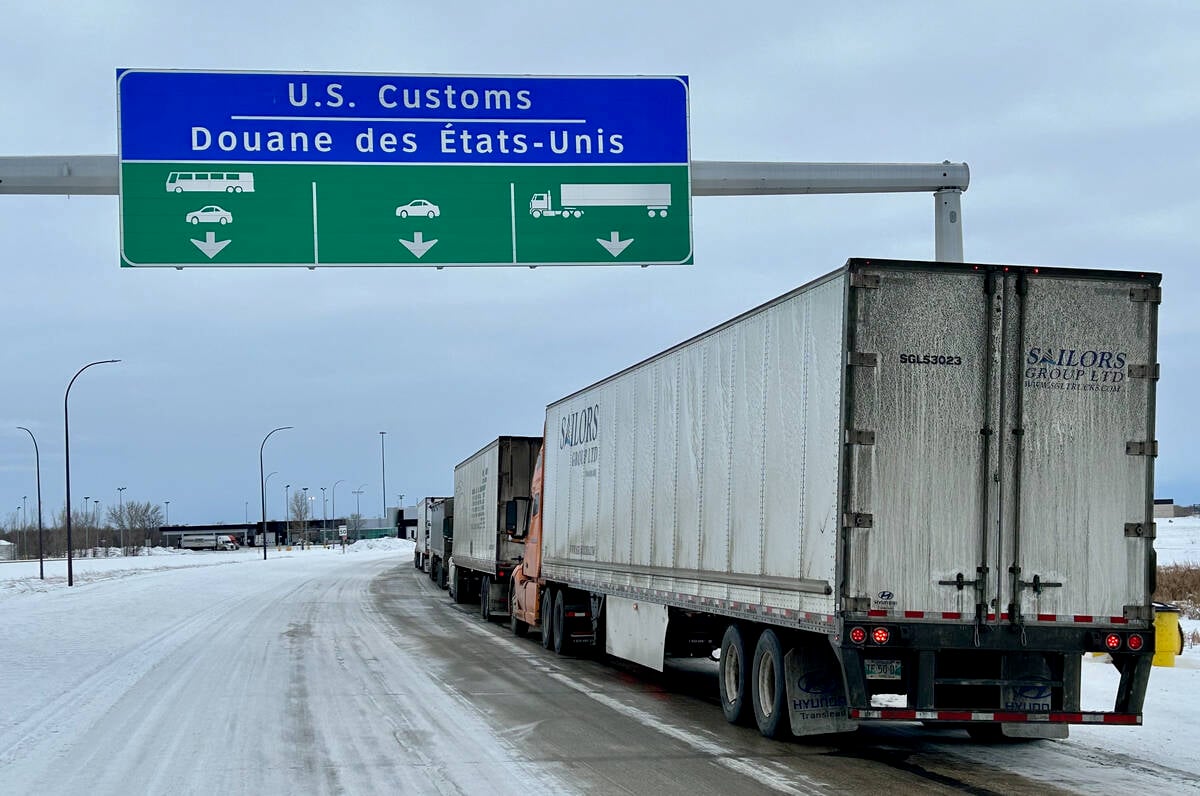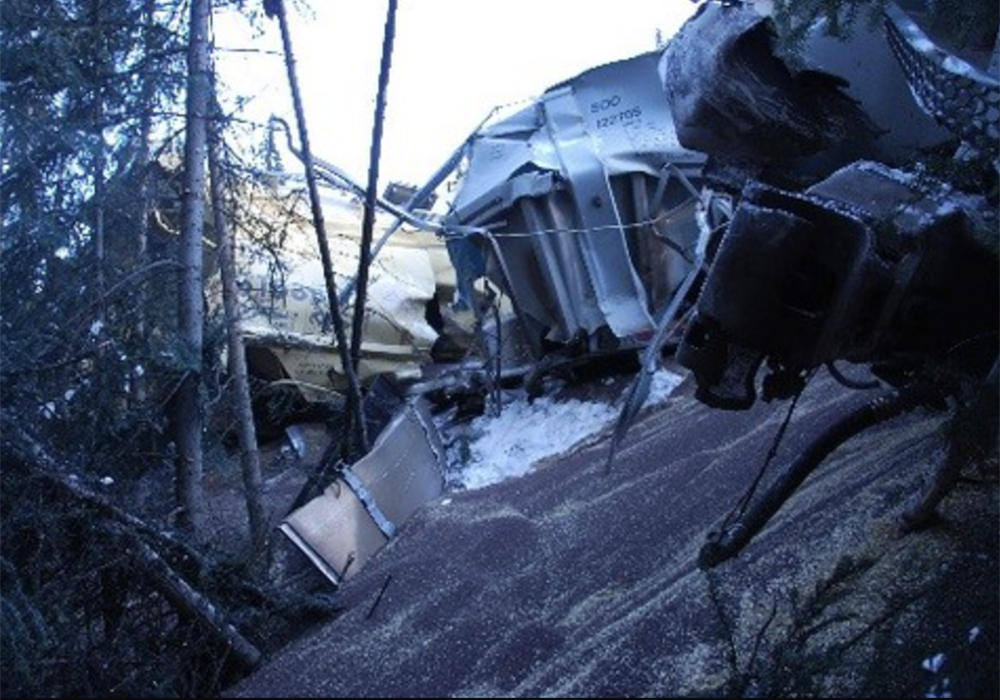Canadian Pacific Railway said the Transportation Safety Board “misunderstood key facts” related to a fatal train derailment near Field, B.C., that killed three CP rail employees in February 2019.
In a written statement, CP also claims that the TSB “misrepresented the facts” related to the derailment during a March 31 news conference in Calgary.
The news conference was aimed at sharing details of a TSB investigation report into the 2019 derailment that killed Dylan Paradis, Andrew Dockrell and Daniel Waldenberger-Bulmer.
Read Also

U.S. bill could keep out Canadian truckers
The Protecting America’s Roads Act, which was tabled in the U.S. House of Representatives at the beginning of October, would “rid the country of illegal immigrant commercial truck drivers and ineligible foreign nationals.”
The three railroaders had been called in to commandeer a 112-car grain train that had come to an emergency stop in the Rocky Mountains near Partridge, B.C., not far from Field.
In -28 C weather, the crew was preparing to begin a controlled descent down a steep stretch of track known as Field Hill, when the grain train began to move on its own.
The runaway train eventually reached a speed of more than 80 km-h before derailing, TSB officials said.
Following its investigation, the TSB made three recommendations to Transport Canada, including a recommendation that CP be required to demonstrate its ability to “effectively identify hazards and assess and mitigate risk using all available information.”
In a written response, CP said it continues to mourn the deaths of Paradis, Dockrell and Waldenberger-Bulmer.
“This is a tragedy that will never be forgotten and one which has strengthened CP’s unwavering commitment to safety…,” the railway said.
“Given the gravity of this incident, and the tragic loss of life, it was extremely disappointing that the TSB misrepresented the facts… and misunderstood key facts about the incident in its report,” it added.
CP rebutted inferences that lack of training and experience contributed to the fatal derailment.
The company also defended its training and certification programs along with safety management systems.
“This was not an issue of training and/or experience,” CP said.
The locomotive engineer was “fully trained, qualified and certified, and (was) well-experienced in the handling of trains on mountain grades.”
According to CP, the TSB also concluded, erroneously, that the train exhibited poor braking performance before the derailment.
“As confirmed in the (TSB) report, the train was fully functional, met all industry standards and passed all regulatory brake test inspections,” CP added.
“There were no systemic hazards that were not appropriately addressed, including Field Hill train braking performance, by CP’s Safety Management System.”


















